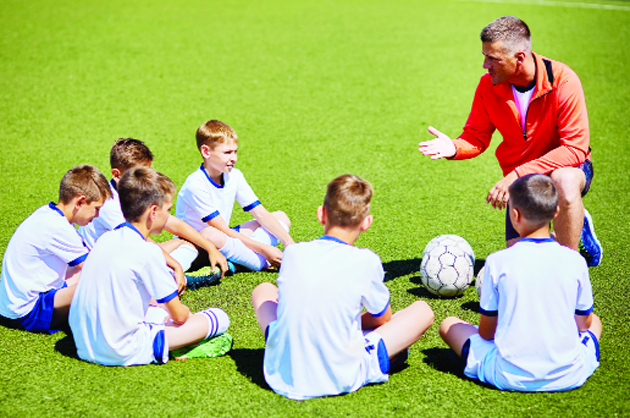Ashok Singh
The Government of India has initiated the establishment of SAI Sports training centres, Centres of Excellence, Sports Academies, and Khelo India sports centres nationwide. Specifically, they aim to create 100 Khelo India centres in the Union Territory of Jammu and Kashmir (UT J&K). These centres aim to engage youth, improve their skills, and promote healthy lifestyles. Additionally, they provide employment opportunities for mentors and coaches, who play a crucial role in the specially designed sports development plans. The effectiveness of these centres largely depends on the dedication and seriousness with which coaches and mentors perform their roles, as they have the power to significantly influence both athletes and society.
Sport coaches play a crucial role beyond just coaching. They are instrumental in helping athletes reach their potential and encouraging children and teenagers to engage in sports and physical activities. Coaches are uniquely positioned to promote active lifestyles, inclusion, and sustained engagement in physical activity. However, achieving these goals requires guidance and an understanding of sports power. Coaches must be equipped to meet these expectations and unlock athletes’ potential.
The central role of sport coaches in the coach-athlete-performance relationship is widely acknowledged. Notable examples include Gareth Southgate, who maximized the performance of his England team during the 2018 FIFA World Cup and supported Danny Rose through his battle with depression.
Primary Aim of Coaching
Sport is linked with both positive and negative experiences and outcomes. On the positive side, it can improve confidence and academic achievement. On the negative side, it can lead to stress, burnout, dropout, and low self-esteem. The role of sport coaches is to encourage healthy development in players. They are important role models for children and youths and, along with parents, are significant adult influences. How coaches interact with players determines the outcomes of participation, making them vital to the physical and psychosocial development that sport can contribute to.
Positive Outcomes: The Four C’s
The positive outcomes of sport can be broken down into four key areas:
Competence,
Confidence,
Connection, and
Character and Caring.
Competence
Competence refers to having a positive view of oneself in specific contexts such as sports, academics, work, and social environments. Feeling competent is a fundamental psychological need for humans in all cultures. Those who feel competent are more likely to be motivated to work hard, pursue excellence, and achieve their goals. The sense of accomplishment when an athlete achieves a goal is powerful and can motivate them to keep pushing forward. Coaches play a central role in promoting a sense of competence, as environments that hinder this perception are associated with lower motivation, performance, and well-being.
Confidence
Confidence involves having a positive sense of self-worth and self-efficacy. This positive self-view can influence motivation, the capacity to learn, and subsequent performance. Confidence is developed during childhood but can be fragile, especially during the teenage years. Coaches can help youngsters show more initiative and become more independent. Coaches who focus on self-referenced improvement promote internal motivation, a willingness to work hard, and resilience, thereby creating athletes who view themselves positively.
Connection
Connection refers to the positive bonds and relationships an athlete develops with peers, coaches, and family. These relationships provide a sense of belonging and social support, which are crucial for emotional well-being. Coaches can foster connection by creating an inclusive team environment where athletes feel valued and supported. Strong connections can enhance teamwork, communication, and trust among team members, which in turn can improve performance and enjoyment in sports.
Character and Caring
Character and Caring encompass the development of integrity, empathy, respect, and responsibility in athletes. Sports can teach valuable life lessons and ethical behaviors that extend beyond the playing field. Coaches who model and reinforce positive values and behaviors can instill a sense of fairness, sportsmanship, and concern for others in their athletes. By promoting character and caring, coaches help athletes develop into well-rounded individuals who contribute positively to society.
Conclusion
Sport coaches are essential to the healthy development of athletes, influencing their physical and psychosocial growth. By fostering competence, confidence, connection, and character, coaches can help athletes achieve their potential and enjoy positive experiences and outcomes from their sporting activities. The establishment of Khelo India sports centres, particularly in UTJ&K, underscores the importance of dedicated coaches and mentors in shaping a healthier and more skilled youth population.
(The author is former Div. Sports Officer JKSC Jammu)
Trending Now
E-Paper


